In your dissertation (doctorate in philosophy) you write about ethical intuitionism and moral dissent. Could you also simplify this to differences of opinion and moral convictions?
Yes, exactly, that gets to the heart of my dissertation very well.
Going a bit further, I am concerned with two central questions: (1) can we still justifiably hold our own beliefs in the face of widespread disagreement on moral issues, and (2) how should we reasonably deal with the fact that there are people who disagree with our moral beliefs?
I have shown that it can be argued that moral disagreement gives us a fundamental reason to reduce the confidence with which we hold our own beliefs. However, this does not automatically lead us to engage in skepticism or relativism about moral beliefs. We can therefore hold on to certain moral convictions despite dissent if we take differences of opinion seriously and try to understand why and where exactly they occur.
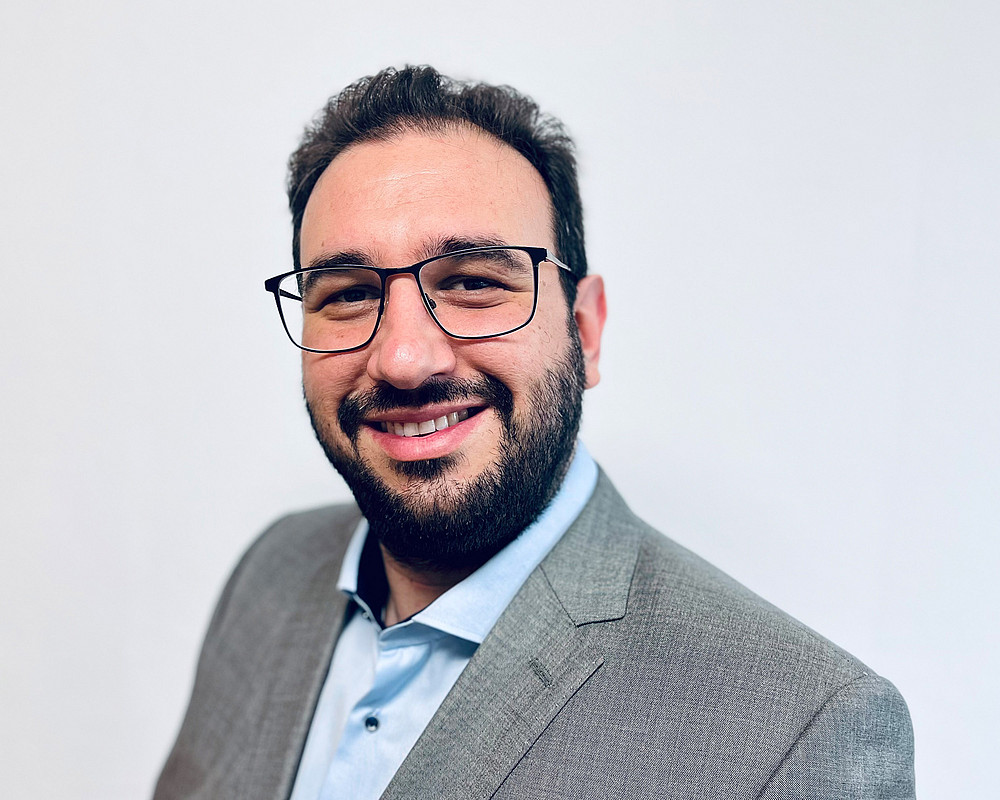
Can your research contribute to the much-vaunted "reconciliation process" in society?
If we understand this to mean that we approach each other and mediate between different perspectives, then I think that my research is indeed suitable for contributing to this.
Occasionally in the philosophical debate, reference is made to faultless disagreements. These are disagreements in which the parties involved weigh things up correctly from their own perspective and thus arrive at conflicting convictions. Taking this idea further, I argue that faultless disagreements can be linked to the thesis that there are objectively correct moral convictions. Accordingly, we have not only pragmatic reasons to strive for a reconciliation process, but also rational ones. In faultless disagreements, we are only justified in holding on to our own convictions if we recognize that the other side is equally justified. But this does not mean arbitrariness, because the different weightings must remain within an objective spectrum of permissible beliefs.
Is ethical intuitionism a topic that you would like to continue working on or will you turn to new questions?
I have already dealt with ethical intuitionism in my thesis. I was concerned with the question of whether it can be reconciled with Kantian ethics. This gave rise to the follow-up question of whether the common objection to intuitionism, that it is unable to deal with differences of opinion, is justified. In my dissertation, I was able to show that ethical intuitionism is not only able to deal with this standard objection, but is actually a particularly promising theory for explaining the complexity of moral disagreement. Already in the course of working on my dissertation, my focus was on how differences of opinion can be explained and what implications for the practical handling result from the theoretical approach. In view of increasing polarization tendencies, I plan to focus even more on different (moral) conflicts in the future.
Markus Seethaler: Ethical Intuitionism and Moral Dissent. Graz University Publishing, 2023.
Sally Baumann
2nd prize dissertations: "quantae miracula pompae vidimus - On the form and function of ekphrastic coloring in Claudian's political and historical poems"
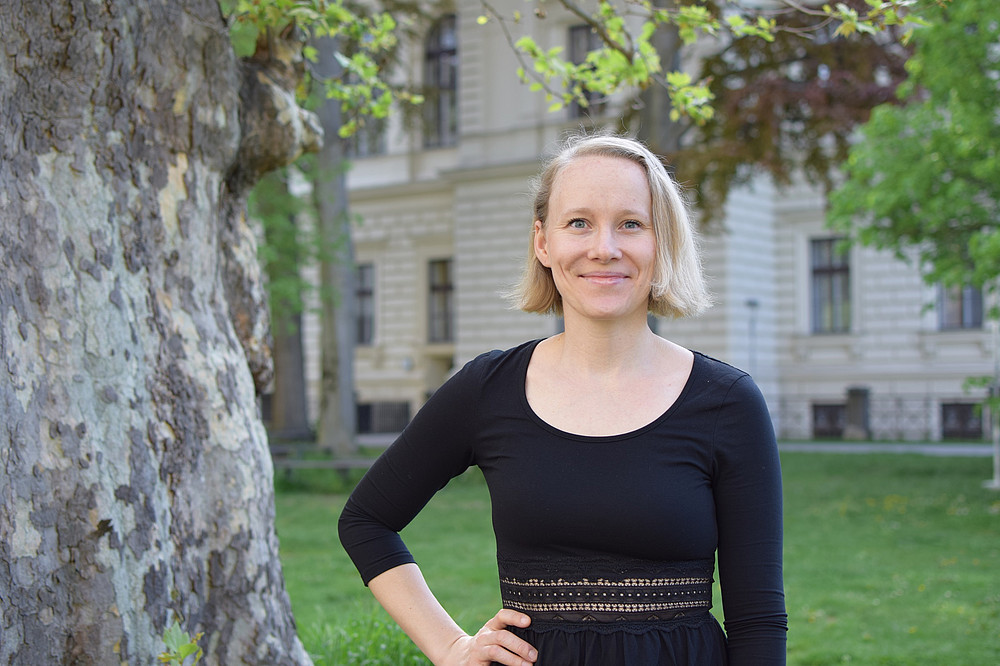
Her dissertation in classical philology is dedicated to "images of power" in the works of the Latin poet Claudian, who was born in Alexandria in the 4th century. Are there differences in the images of power used then and now?
Claudian's political and historical poems were written in the late 4th/early 5th century and were mainly used to glorify the members of the Western Roman court, mostly the child emperor Honorius and his guardian Stilicho, or to defame their Eastern Roman opponents under Honorius' brother Arcadius. In my dissertation, I am concerned with the vividly descriptive, visual passages in these poems, examining their form and function. These descriptions regularly play an important role in the glorification of the addressees, who underpin their position through the decidedly visual text excerpts. In this sense, the descriptions can be understood as "images of power". In terms of content, these "images" are of course bound to the context of their creation; the description of an adventus, for example, is not found in this form today (note. Adventus [=arrival] is the ceremonial, solemn entry of a ruler into a city, often with his army following a victorious battle). However, its design principles are comparable to those of today's images of power.
Can your analyses also help with critical reflection on current media or propaganda texts?
Of course. Insofar as, as already mentioned above, they help to scrutinize literary design mechanisms and their effects. In my study, for example, I not only note that the description of an adventus of Honorius and his army takes place through the eyes of young, overwhelmed female viewers (in narrative theory this is called internal focalization), but in a second step I ask what effect the use of this recourse has on the recipient (e.g. emphasis on the masculinity and strength of the still very young emperor). This is what our work as classical philologists and literary scholars is all about: We ask how the ancient text works and why. This sensitizes / trains us to ask the same questions of modern / contemporary texts.
In your essay, you write that you had to justify your work as a humanities scholar time and again to those around you, but especially to yourself. You have now finished your dissertation, which was awarded a prize - are you still justifying yourself?
That's a good question. At this point, I no longer doubt the content of my work and see myself as a literary scholar in the field of classical languages; I have therefore found my role and no longer justify myself in terms of the meaningfulness of my work. However, as a young mother and woman with a family who is/can't be infinitely flexible, I unfortunately can't help but question my career choice from a pragmatic point of view in view of the sometimes precarious job situation in my field (including fixed-term contracts).
Gerlinde Gangl
1st prize Master's thesis: Gerlinde Gangl "Deutsche Rechts-WortSchätze Onomasiologische, projektorientierte Analyse eines prägenden Bildspendebereiches der deutschen Gegenwartssprache"
You have written your Master's thesis in the Joint Masters Degree program "German Philology of the Middle Ages and Early Modern Period". It deals with the "transgression process" from historical legal phrases - such as gallows term or make a head shorter - to metaphorical expressions in everyday language. How would you explain this topic to a family member?
Basically, metaphorical or figurative expressions are used to describe something in a particularly vivid or memorable way. In this process, a word, or rather an entire concept, is detached from its original environment and integrated into a new context of meaning, whereby a similarity between the old, original meaning and the new, transferred meaning can still be determined. Different motivations can be assumed for the transition from the legal to the figurative realm. If we look, for example, at the phrase 'mitgegangen, mitgefangen, mitgehangen', in the original legal context this refers on the one hand to the punishment of all accomplices or any involvement in a crime. On the other hand, the phrase sometimes implies hanging as a specific death penalty. 'Hanging with' also brings to mind a communal execution and gallows constructions, which were intended especially for gangs of robbers in order to dangle the leader above the other members. As such punishment scenarios were carried out in front of the public, these horrific images have evidently been permanently etched into cultural memory - similar to a trauma - and are preserved today in the form of relics in the pictorial language of the present.
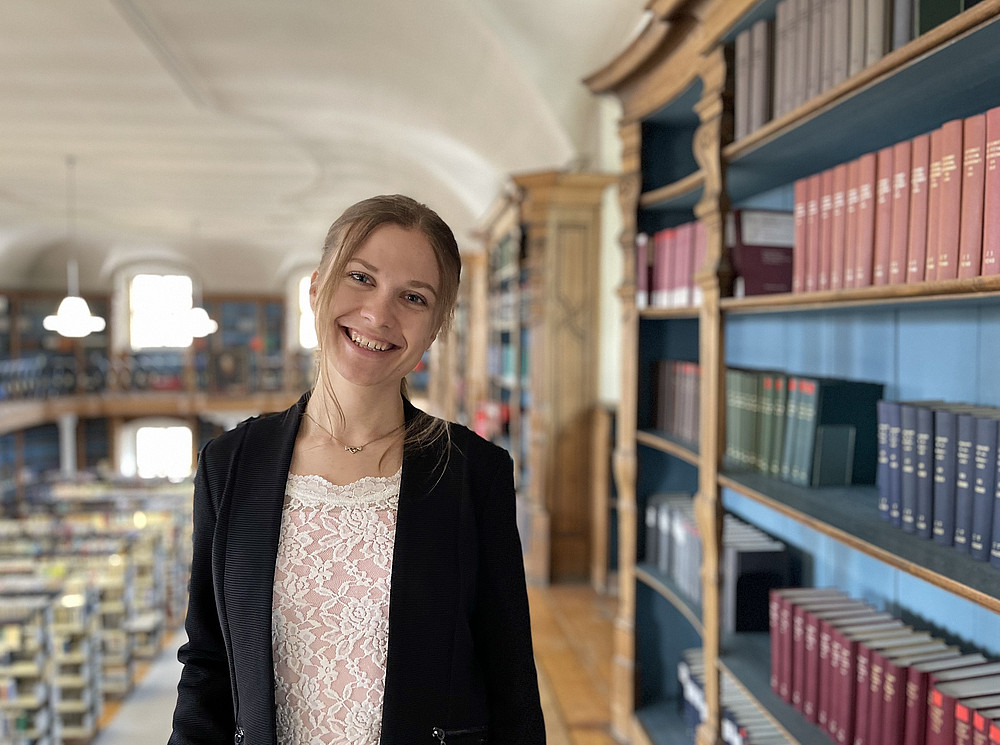
You chose an interdisciplinary approach, which your supervisor at the University of Graz described as "linguistic-archaeological-legal-analytical". What does that mean?
As I understand the figurative expressions as 'language relics', it was particularly important to me to uncover their significance in terms of legal history. To do this, it was necessary not only to take a look at the history of language, but also to include real-life material such as gallows constructions, skeletal remains and instruments of punishment in addition to legal texts in order to make the process of the change in meaning comprehensible. My interest in concrete objects and my love of detail can be explained by my archaeology studies, which I pursued alongside my German studies. After moving to Bamberg for my dissertation, I was lucky enough to be able to pursue my passion at the university there and study the two subject areas 'Archaeology of the Middle Ages and Early Modern Period' and 'Basic Historical Sciences' in parallel as part of the 'Interdisciplinary Medieval Studies' master's program, which I will complete this year.
You prefaced your Master's thesis - which is over 800 pages long - with a quote from Einstein: "I have no special talent, I am only passionately curious". Does your passion for the linguistic study of medieval and early modern German philology still persist?
Once you've given birth to a baby like this, the difficulty lies more in being able to let go and explore new avenues as part of the dissertation project. The 'Introduction to German Language History' seminar, which I'm teaching independently for the first time this semester at the Otto Friedrich University in Bamberg
, has broadened my perspective considerably, as I'm looking at processes from Indo-European to Modern High German and not just focusing on the
Middle Ages. Now it's time to break new ground and take on new challenges - and that's exactly what I'm passionate about (more than ever)!
Julia Kaidisch
2nd prize Master's thesis: Julia Kaidisch "Alexander Gottlieb Baumgarten, a pioneer of artistic research? The Aesthetica and the contemporary discourse on knowledge through the arts in comparison"
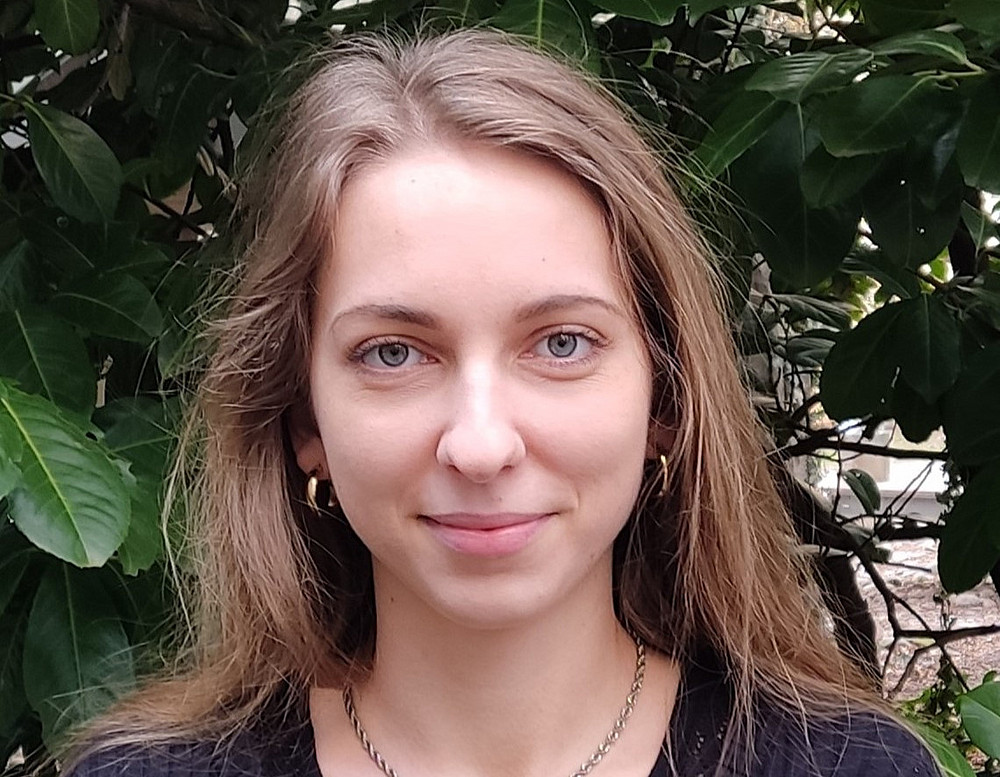
You completed your Master's degree in philosophy with a thesis on Alexander Gottlieb Baumgarten. In it, you deal with the question of whether Baumgarten's "Aesthetica" can be seen as a precursor to the current debate on "artistic research". In it, however, you argue for the use of the term "artistic knowledge". What exactly do these terms mean and what is the difference?
The conceptual dividing lines between 'artistic knowledge' and 'artistic research' are anything but clear in the current discourse - the latter is often understood so broadly that it becomes congruent with the former in relation to the epistemic processes of all art forms. Inmy opinion, this does not make sense, especially with regard to recognizing the epistemic value of art; instead, 'artistic knowledge' should be understood as a superordinate concept and 'artistic research' as a special form of it. By 'artistic cognition' I mean (partly based on Baumgarten) a non-discursive, strongly associative, processual engagement with the world (both on the part of the artist and the recipient) that does not necessarily work towards a goal, through which a non-conceptual form of knowledge is generated.'Artistic research' as a special form is characterized in comparison to other art forms by the determined choice of a (sometimes already established) method as well as a stronger goal orientation.
What is the value of artistic insight, especially with regard to the (socio)political dimension of art?
The socio-political cognitive value of art lies above all in its pointing out, questioning and breaking up social norms, which usually become invisible to the everyday gaze through the rut of habit. One such field is artistic work against forgetting - in Wolfgang Borchert's drama "Outside the Door" (1947), the protagonist wrestles with a guilt that has no meaning for post-war Germany in its future-fixated repression. The action "Radioballett" by the artists' group LIGNA also achieves social explosive force - a group of people at Hamburg (2002) and Leipzig (2003) central stations sounded out the limits of our behavior in public space by being given instructions via a voice from the radio. For example, the hand extended in greeting is turned slightly into a begging hand, a breach of taboo in the consumer-oriented public space. The question inevitably arises as to who this space belongs to and obeys. Art makes it possible to experience those structures that usually fall under our radar.
You are already studying for a doctorate. Is your dissertation dedicated to a similar research question or are you dealing with a completely different topic?
My dissertation is being written as part of the FWF project "Reimport of Analytic Philosophy to German Speaking Academia. A Case Study on the Role of Rudolf Haller". I have decided to shed light on a discourse in the philosophy of art that flared up after the publication of Wittgenstein's Philosophical Investigations (1953) and is still going strong today. The central question is the possibility of defining the essence of art. Wittgenstein's successors vehemently deny this, and in response there is a whole wave of pro-essentialist approaches. As an art-interested Wittgenstein connoisseur, the Graz philosophy professor Haller opened up stimulating perspectives and links in his essays, which should enrich an examination of the various lines of argumentation in this discourse. I therefore remain faithful to the philosophy of art - the specific epistemological view of art is of course highly relevant to the question of its nature.
Natalija Milovanović
2nd prize Master's thesis: "Auf Unsrisch": Migration as an experience that can be understood in any language
In your excellent Master's thesis from the Joint Master's Program Translation, you deal with the translation of a novel by the author Goran Vojnović. Specifically, it deals with the translation of the novel "Jugoslavija, moja dežela" and how aspects such as multilingualism, cultural realism and hybridity of the original work were transferred into the German translation by Klaus Detlef Olof. What is behind these terms and what is the difficulty for the translator?
When there are several languages in a literary text, we speak of literary multilingualism. This can have different forms and functions, but always (in)indirectly expresses relationships between the languages, which should also find their appropriate place in the translation. In addition to multilingualism, cultural realia are also a very important aspect. By this we mean elements that are intrinsic to a culture and require no explanation, but this does not apply to translation, as the readers do not have the same knowledge. The third key concept - hybridity - goes back to Homi Bhabha and primarily problematizes the idea of rigid cultural boundaries. According to Bhabha, cultures are not clearly defined, but constantly influence each other. Hybridity is therefore understood as the product of cultures influencing and interpenetrating each other. Incorporating such multilingual and multicultural dynamics of the literary text into a third language is a major challenge for translators.
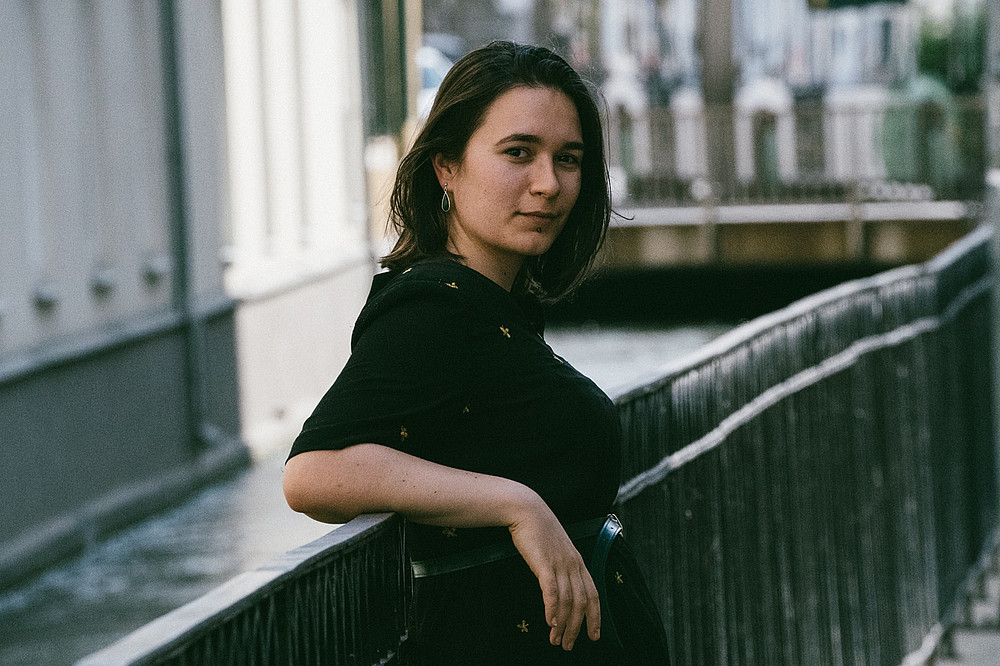
What is the particular challenge for translators when working with literatures of migration or authors with a migration background?
The particular challenge lies in understanding the power relations between the languages and cultural realms used and their hybrid mixtures. Translators must understand the functions of linguistic and literary devices in order to translate them accordingly. However, since literary translations offer little or no room for explanations, working on a translation of the literature of migration is like an exercise in balance: How do I express the most with the least amount of explanation? How do I explain as much as possible without disrupting the flow of reading?
The title of my master's thesis "Auf Unsrisch" is also a quote from Vater's Land, a phrase that occurs to the protagonist when he wants to get a discount from the immigrant mechanic in Slovenia. In two words, the phrase "auf Unsrisch" (in Unserisch) implies the proximity of the B/K/S languages and their speakers, who were formally separated after the Yugoslav Wars but are very close abroad. However, this complicated proximity must be shown in a completely different way in German in the course of the text.
In your essay for the award submission, you emphasize the relevance of literature of migration and its translation into different languages for the visualization of migration experiences across language and generational boundaries. In your opinion, is enough space given to this topic in German-language publishing houses?
In German-language publishing houses in particular, this topic has been relatively strongly represented and normalized in recent times. It is given space at the center and not on the fringes of the literary landscape. On the one hand, this is reflected in nominations and the awarding of important prizes or scholarships. On the other hand, the relevance of the literature of migration is also evident, for example, in the conception of so-called "national literature". The first example that comes to mind is Austria's appearance as guest country at the 2023 Leipzig Book Fair under the motto "meaoiswiamia", or "more than us". If you look at the list of contributors, it immediately becomes clear that more than Austrian literature in the narrow sense has found its place.
In the Slovenian-speaking world, too, the number of voices describing transcultural experiences is slowly growing. In addition to Goran Vojnović, other authors have recently emerged with comparable stories and works of literary value.